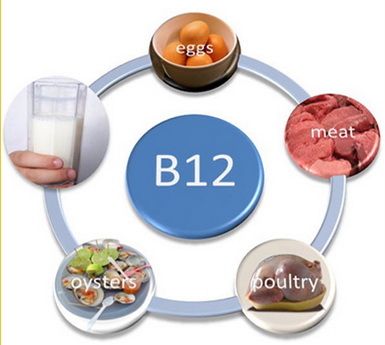The Vitamin That Is Missing from Plant-Based Diets
People have been increasingly excluding meat from their diets as of late, for many different reasons. Some take up plant-based diets in hopes of losing weight, others cut on meat to reduce cholesterol levels. Some claim they feel better without animal protein, and others reject meat due to vegetarian principles.
What some, if not most of these people, are possibly not aware of is that a completely meat-free diet is actually unbalanced and can cause serious nutrient deficiencies. Some nutrients, such as vitamin B12, can be naturally obtained through the consumption of animal protein, which means it is automatically missing from vegan and most plant-based diets.
This becomes a problem because B12 is essential for the brain to function properly, and bigger quantities are necessary as one ages, since the rate of absorption is also increased. On a noticeable level, patients suffering from B12 deficiency will experience a tingle in their hands and feet, a sense of nausea and fatigue, and the loss of muscle strength.
The good news is that one can absolutely exclude meat from their diet without becoming B12 deficient — if they still consume other animal products. Drinking cow’s milk, for instance, will help anyone on a vegetarian diet reach their B12 needs without touching meat. Two cups per day will also bring in a number of other nutrients such as calcium, phosphorus and potassium, all of which enrich and improve the condition of the organism.
Eggs are a solid source of protein which can be cooked in many ways and serve several purposes. Their yolks are also a great source of B12, though they can't fully fulfill one's daily needs singlehandedly.
Greek yogurt contains a decent amount of B12, too. The plain, unsweetened kind is very versatile, as it can be consumed as a snack, used to make gravy or served as a salad dressing - perfect for those who are following a plant-based diet.
It is also possible to obtain naturally at least some B12 while staying vegan, as fortified breakfast cereal can provide the necessary daily amount, as do some varieties of tempeh. Consumers can’t have blind faith in these products though. Checking the labels carefully for ingredients and nutritional facts will ensure that correct choices are made.
Lastly, B12 supplements are available on the market for those who can't make use of any of the aforementioned food sources. However, these should always be used with moderation and only as a last resort, in the event that one's diet choices don’t allow their B12 needs to be fully fulfilled.